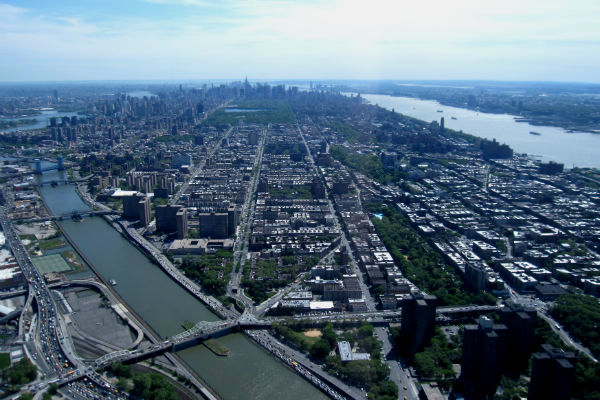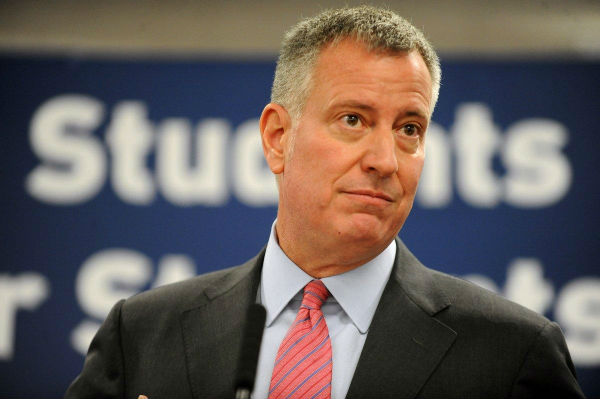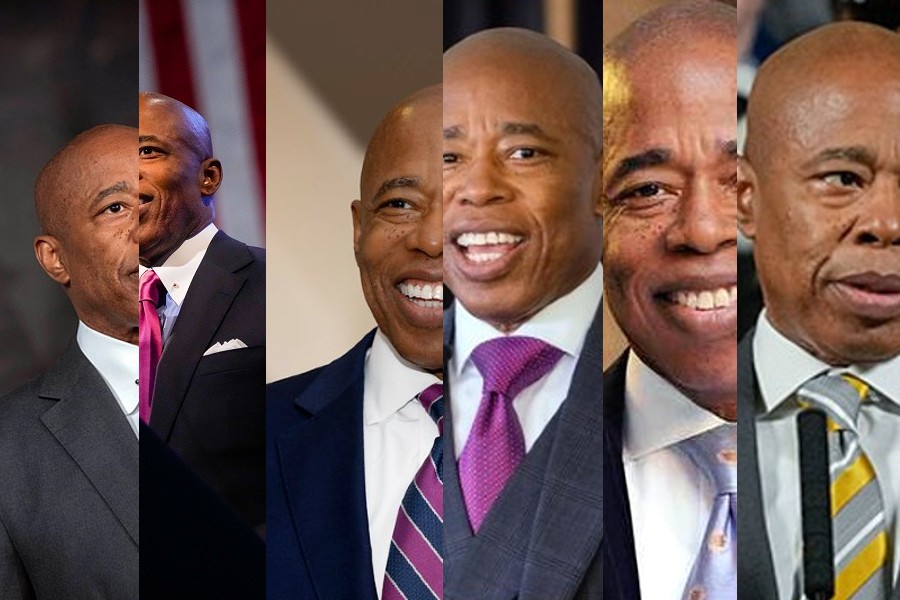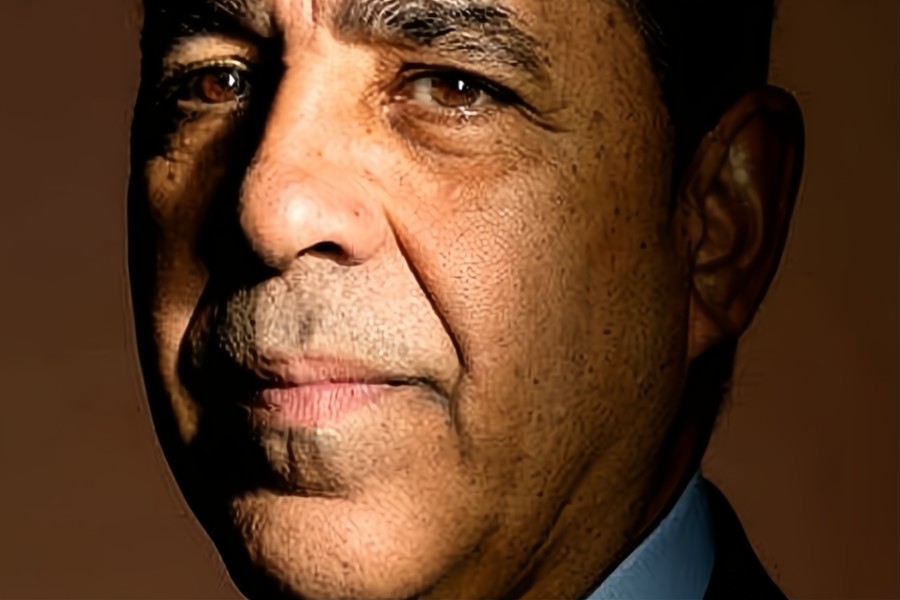 Mayor de Blasio today hosted elected officials and advocates at a rally demanding that the Board of Elections make Early Voting easy for New Yorkers. The Mayor urged the BOE to use $75 million dedicated in the Executive Budget to open 100 early voting sites, ensuring no New Yorker has to travel far to cast an early ballot this November. Early voting requires the BOE to offer New Yorkers the opportunity to vote for nine days prior to Election Day. In addition to helping seniors, people with disabilities, parents, and people who have a difficult work schedule, early voting can potentially help prevent long lines, confusion and broken ballot machines on Election Day, which New Yorkers experienced in the 2018 General Election.
Mayor de Blasio today hosted elected officials and advocates at a rally demanding that the Board of Elections make Early Voting easy for New Yorkers. The Mayor urged the BOE to use $75 million dedicated in the Executive Budget to open 100 early voting sites, ensuring no New Yorker has to travel far to cast an early ballot this November. Early voting requires the BOE to offer New Yorkers the opportunity to vote for nine days prior to Election Day. In addition to helping seniors, people with disabilities, parents, and people who have a difficult work schedule, early voting can potentially help prevent long lines, confusion and broken ballot machines on Election Day, which New Yorkers experienced in the 2018 General Election.
The Mayor sent a formal letter to the BOE urging them to put forth a robust early voting plan. The letter can be found here.
“We now have a real opportunity in New York to strengthen our democracy and drive up participation in our elections,”
“We now have a real opportunity in New York to strengthen our democracy and drive up participation in our elections,” said Mayor Bill de Blasio. “However, to take advantage of this opportunity, the Board of Elections must abandon their age-old practice of doing the bare minimum. They must do right by New Yorkers, and we’re giving them the funding to do it. I want to thank the Chairs of the Committee on Elections, State Senator Zellnor Myrie and Assembly Member Charles Lavine, as well as the rest of the legislature for approving early voting – a crucial electoral reform that will make voting easier. Our message to the Board of Elections is simple: get early voting right.”
“Early voting empowers New Yorkers who traditionally have a hard time getting to the polls on Election Day,” said Deputy Mayor for Strategic Policy Initiatives J. Phillip Thompson. “Whether you’re a senior, the parent or just someone with a tight work schedule, the Board of Elections must do right by you. We’re giving the Board of Elections enough funding to come up with a robust early voting plan that can touch every community. Providing early voting at less than 100 poll sites will be completely dismissive of what New Yorkers need and deserve to participate in our democracy.”
“DemocracyNYC was founded to increase public engagement in our democratic process. Giving every New Yorker a voice means making elections more fair and accessible, and early voting is a critical step toward achieving this goal. I want to thank Chairs Myrie and Lavine for their leadership in passing early voting in the State Legislature, and for their unwavering commitment to election reform. I strongly encourage the Board of Elections to establish a robust, accessible and equitable early voting program,” said Ayirini Fonseca-Sabune, New York City’s Chief Democracy Officer.
In the most recent legislative session, the State passed crucial electoral reforms to make voting easier for New Yorkers, including consolidating state and federal primaries, authorizing the use of electronic poll books and providing early voting for nine days prior to election day. In his Fiscal Year 2020 Executive Budget, the Mayor allocated $96 million for these reforms, including $75 million to provide early voting for three election cycles in 2019.
The State legislation requires the BOE to provide early voting at a minimum of 34 poll sites. However, the Mayor’s funding commitment allows the BOE to go beyond the minimum requirements of the law. Each of the three upcoming elections will receive $25 million to designate a total of 100 sites. Specifically, the funding will cover the 2019 November General Election, 2020 Presidential Primary and the 2020 June Primary.
There are countless libraries, schools, senior and community centers, including NYCHA community centers, which have previously been used as poll sites.
The Mayor’s $75 million investment also includes funding for dozens staffers at each of the 100 poll sites across New York City. Early voting begins October 26 through November 3. There are countless libraries, schools, senior and community centers, including NYCHA community centers, which have previously been used as poll sites.
The BOE has a long history of providing the bare minimum when administering elections, as illustrated by their interpretation services. The BOE currently provides interpretation services in certain poll sites in Spanish, Mandarin, Cantonese, Korean and Bangla, as required by the Voting Rights Act. The BOE has the authority to go beyond what is required by law to provide additional interpretation services to additional limited English proficient New Yorkers but has not done so. In the face of their inaction, the Administration has previously filled a gap across communities by providing interpretation services at poll sites in an additional six commonly spoken languages among limited English proficient eligible voters. These languages include Russian, Haitian Creole, Italian, Arabic, Polish and Yiddish, among others.
In February, the BOE sued the City to bar City interpreters from being placed inside poll sites to make voting easier for limited English Proficient New Yorkers. A judge denied the BOE’s request for a preliminary injunction, allowing the City to move forward with its plan to place interpreters inside 48 poll sites in Brooklyn and Queens for the Public Advocate Special Election. The BOE’s lawsuit against the City is ongoing. At the rally, the Mayor denounced the BOE’s attempt to make voting harder for limited English proficient New Yorkers.
“Early voting is a long-awaited, desperately needed reform to strengthen our democracy and help more New Yorkers get to the polls and make their voices heard, and we need to get it right,” said NYC Comptroller Scott Stringer. “My office’s audits shined a light on deeply concerning, systemic issues in the BOE’s operations, and New Yorkers deserve to have confidence that the BOE can implement early voting fully and successfully.”
“New Yorkers are busy—which is why New York City needs early voting,” said Manhattan Borough President Gale A. Brewer. “We’ve gotten used to being ahead of the curve, but New York has been late to the game on early voting. I thank Mayor de Blasio for allocating $75 million towards a comprehensive early voting plan, and I look forward to seeing a Board of Elections plan that includes making sure that all early voting locations are accessible and convenient.”
New York State finally being able to participate in early voting will make a difference in improving voter turnout and engagement,” said Council Member Ben Kallos. “We must get this right as a City and make sure that we distribute early voting locations fairly and appropriately for this to run smoothly. I commend Mayor de Blasio for setting aside $75 million for the BOE simply to make sure early voting happens without a hitch. This is a historic moment in our City and State’s history which we should all be looking forward to.”
“Early voting is absolutely critical to an accessible and fair democratic process. I wholeheartedly join the Mayor’s call for the robust and fair distribution of early voting locations, and am delighted to see that at least 100 locations are already funded. In 2015, my office launched Student Voter Registration Day, which brought thousands of New York City high school students on to the voter rolls, and thanks to Mayor de Blasio’s DemocracyNYC initiative, opportunities for civic engagement only continue to grow,” said Council Member Helen Rosenthal.
“The Mayor has devoted $75 million in his proposed budget for early voting implementation and now it’s up to the Board of Elections to get it right. We need voting centers across the city to serve New Yorkers in non-tradition locations like transit hubs, shopping centers, city facilities and more. This is an opportunity for creative thinking and we are excited to work with the city to let every eligible New Yorker vote,” said Susan Lerner, Executive Director of Common Cause/NY and co-founder of Let NY Vote.
“Early voting will not work for New York without adequate funding and intentional implementation to serve all New Yorkers. The NYC Board of Elections needs to do more than the minimum standard. We need sufficient poll sites across the five boroughs that are geographically accessible to all voters with adequate language access support. We are excited that the Mayor is funding early voting so that New Yorkers don’t have to choose between voting and working. We need the NYC Board of Elections to actually implement real early voting and run elections competently,” said Murad Awawdeh, Vice President of Advocacy at the New York Immigration Coalition.
“For too long, New York has lagged behind other states when it comes to encouraging civic engagement and participation in the democratic process. The recently passed reforms, including early voting, are an important first step. But reforms without the funds to properly implement them are not enough. The Mayor’s budget, which includes $75 million for early voting, demonstrates a commitment to protecting and expanding the right to vote. We call on the Board of Elections to work with the administration to ensure that New Yorkers are fully able to participate in early voting by making convenient early voting sites available to all,” said Betsy Gotbaum, Executive Director of Citizens Union.
“New York voters have clamored for reform for years. Now that the legislature has finally done its part and New York City is providing the funding, the Board of Elections shouldn’t stand in the way of making early voting the convenient experience it can and should be,” said Sean Morales-Doyle, Counsel for the Democracy Program at the Brennan Center for Justice.
“Our democracy is stronger, New York is stronger when more people vote. Early voting makes that possible–especially for workers whose job schedules make it difficult for them to vote. We need to stop disenfranchising hardworking women and men, and give them a real chance to exercise their constitutional right to vote and select representatives who will fight for their needs,” said Stuart Appelbaum, President of the Retail, Wholesale and Department Store Union.

“We applaud Mayor de Blasio for putting resources into making sure early voting is a success in New York City. At a time when the federal government is trying to disenfranchise voters, protecting and expanding voter access is a priority in New York,” said Michael Mulgrew, President of the United Federation of Teachers.
“Early voting is a critical tool that will allow expand opportunities for working New Yorkers to participate in our democracy without suffering undue economic hardship as they often do under the current system. The New York City Central Labor Council, AFL-CIO joins Mayor de Blasio in calling for the NYC Board of Elections to take every possible measure to ensure that all New Yorkers have access to early voting, including LEP New Yorkers who require interpretation services,”
“Early voting is a critical tool that will allow expand opportunities for working New Yorkers to participate in our democracy without suffering undue economic hardship as they often do under the current system. The New York City Central Labor Council, AFL-CIO joins Mayor de Blasio in calling for the NYC Board of Elections to take every possible measure to ensure that all New Yorkers have access to early voting, including LEP New Yorkers who require interpretation services,” said Vincent Alvarez, President, New York City Central Labor Council.
“The Professional Staff Congress, representing 30,000 faculty and staff at CUNY, has a long tradition of advocating for an expansion of voting rights. As professors who teach thousands of newly arrived immigrants at CUNY as well as students from every corner of the city, we know first-hand how important linguistic and geographic access to voting is. We stand behind efforts to make democracy more authentic by ending every barrier, whether blatant or subtle, to access to the vote,” said Barbara Bowen, President, Professional Staff Congress.
Theo Oshiro, Deputy Director of Make the Road New York, said: “After passing early voting, New York has the opportunity to be a leader in expanding voting rights—but only if the Board of Elections steps up to the plate and does everything it can to have this system work for all voters. No voter should have to travel a long distance to participate in early voting, so it’s urgent that the BOE opens as many early voting sites as it can to accommodate New Yorkers across the five boroughs.”
“We need to break down the barriers that have kept everyday New Yorkers from participating in the democratic process. For early voting to be effective, people need reasonable access to polling sites. Our democracy is stronger and healthier when we make it easy for people to vote,” said Stanley Fritz, Campaign Manager for Citizen Action of New York.
Amanda Ritchie, Co-founder, Brooklyn Voters Alliance, said, “Brooklyn has the highest number of registered voters in New York State, and a history of voting problems including illegal voter purges, denial of translation services and significant voting equipment failures. Brooklyn voters are hopeful that the recent and historic changes to New York’s voting laws, including 9 days of Early Voting, will help more New Yorkers exercise their fundamental right to vote. Early Voting is a well-established voting practice that, when implemented properly, has been shown to increase voter access, improve the voting experience and make voting more convenient. The NYC Board of Elections has a real opportunity to make voting easier and more accessible for NYC voters. The Board must designate a sufficient number of accessible and convenient Early Voting polling locations to serve Brooklyn’s nearly 1.5 million voters; ensure voters receive clear information about Early Voting dates, polling locations and hours of operation; and employ suitable, secure technology staffed by well-trained poll workers to realize the promise of this important voting reform. Brooklyn Voters Alliance urges the NYC Board of Elections to use the resources at its disposal and make sure Brooklyn and all NYC voters get better and more equitable access to voting that well-implemented Early Voting provides.”
“Early voting will address one of the key challenges for civic engagement for Asian voters. In our report, ‘Asian Americans in New York City: A Decade of Dynamic Change,’ we found that almost half of the registered Asian voters in New York City surveyed said that they were too busy to vote, more than twice the rate of other ethnic groups. This is not surprising given the number of Asian small-business owners and low-income Asians working multiple jobs to make ends meet in our communities. Early voting will give these registered voters the ability to make their voices heard while accommodating their busy schedules,” said Jo-Ann Yoo, Executive Director, Asian American Federation.
Brett Eisenberg, Executive Director at the Bronx Independent Living Services, said, “We believe fundamentally that all polling sites including early voting sites should be fully accessible to all individuals with disabilities and that we should not have to travel far distances to find accessible locations that meet our needs. As an agency, we encourage all of the nearly 3000 clients we serve annually to vote and far too often we hear that their civil rights are being violated by not being able to do so like everyone else. We urge the Board of Elections to ensure every location is fully accessible including early voting sites and that people with disabilities be treated fairly and equally.”
“With 2. 6 million residents – including more than 200,000 with mobility disabilities—across Brooklyn’s 69-plus square miles, too few early voting sites would just add to the frustration we’ve experienced here in past elections,” said Stefan Henry, Staff Member at the Brooklyn Center for Independence of the Disabled. “The Board of Elections should work closely with the City and advocates to select as many fully accessible locations, proportionate with population, as possible.”
“Early voting needs to keep all its citizens in mind, and make it simple to vote. What if one is not computer savvy? Libraries need to be informed of early voting locations. The Board of Elections has to work on poll worker training with emphasis on all disabilities is paramount,” said Robert Acevedo, a Staff Member at Disabled Action.
Danielle Brecker, Co-lead Organizer of Empire State Indivisible, said, “The voting reforms passed by NY state earlier this year, including Early Voting, are largely the result of a record number of New Yorkers voting for new progressive candidates. Those candidates, once in office made voting reform their top priority because they uniquely understand that they work for their constituents and voting is cornerstone to our democracy. Now is the time to embrace the voting reforms and build on the voter engagement in 2018. The BOE must fully and with all possible resources make Early Voting accessible and easy. Anything less is contrary to the will of the people of NY.”
“I suspect that, as usual, people with disabilities will come out as losers during this process, just as we usually do. Early voting could be a major improvement for all voters, but it just may not turn out that way for people with disabilities. Please take our needs under consideration when you put these new procedures into operation,”
“I suspect that, as usual, people with disabilities will come out as losers during this process, just as we usually do. Early voting could be a major improvement for all voters, but it just may not turn out that way for people with disabilities. Please take our needs under consideration when you put these new procedures into operation,” said Rocky Simms, Social Caseworker at VISIONS: service for the blind and visually impaired.
“In CPC’s non-partisan voter engagement work with low-income, immigrant, and Asian American and Pacific Islander (AAPI) communities, we encounter many would-be voters for whom poll hours and site locations are a primary hurdle — particularly for working voters and those who are caregivers, aging, or living with disabilities. For this reason, we were proud to see Early Voting pass with funding for implementation this session,” said Amy Torres, Director of Policy & Advocacy at Chinese-American Planning Council. “However, Early Voting will only be as effective as its implementation. We must have a robust number of new sites, an equitable distribution of locations, and clear messaging that drives voters to Early Voting locations or Election Day locations. All the while, the Board of Elections must ensure that Early Voting sites are well-staffed and that language access is a priority for Limited English Proficient voters.”
“We live in a state that consistently ranks near the bottom in voter turnout, caused largely by a host of obstacles that makes participatory democracy tougher for many voters. Early Voting is a historic opportunity to remove obstacles to participating. It is essential that early voting locations are equitability distributed and accessible to all New Yorkers,”
“We live in a state that consistently ranks near the bottom in voter turnout, caused largely by a host of obstacles that makes participatory democracy tougher for many voters. Early Voting is a historic opportunity to remove obstacles to participating. It is essential that early voting locations are equitability distributed and accessible to all New Yorkers,” said Melody Lopez, Executive Director, New York Civic Engagement Table.
“New York took a great step to bring our state’s antiquated democracy into the 21st century when it enacted early voting,” said DeNora Getachew, New York City Executive Director of Generation Citizen. “Kudos to Mayor de Blasio for putting more money on the table to ensure that the City’s 4.8 million voters – many of whom are young people used to convenience and efficiency in their lives – have flexible options to make their voices heard.”
Become a Harlem Insider!
By submitting this form, you are consenting to receive marketing emails from: . You can revoke your consent to receive emails at any time by using the SafeUnsubscribe® link, found at the bottom of every email. Emails are serviced by Constant Contact








